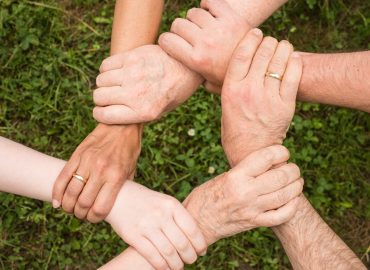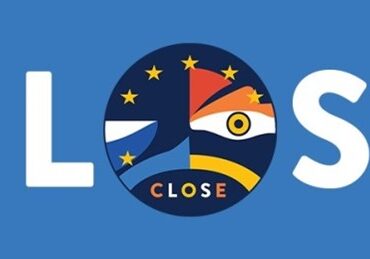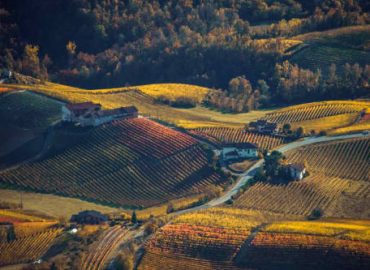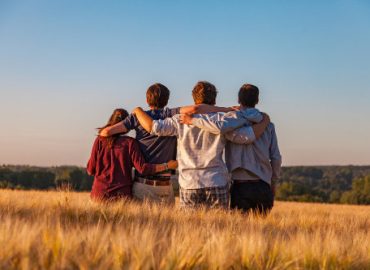Glocal Factory designs and implements projects granted by the European Union and other public and private institutions, aimed at social inclusion, people and community empowerment, sustainable development.
We are currently engaged, together with other Italian and European partners, in implementing 15 transnational projects funded by the EU in the frame of the Erasmus Plus Programme:

UNITED – UNderstand, Inform, Think, EDucate
UNITED project is a cross-sectoral cooperation of public institutions, CSOs and teaching institutions involving Jewish history and education experts from Croatia, Italy, Slovenia and Poland. Project objectives are to engage young people in the culture of remembrance and empower them to be aware and act in response to the antisemitism today. Within the project the students will research less-known events from their local communities, related to Holocaust, and commemorate those events by using art to reflect on what they researched. The interdisciplinary approach will allow the students to get a deeper perspective of the Holocaust and more personalized approach towards it.
In addition, the project will promote EU values and raise the students’ civic competences. Using the gained knowledge, the students will implement an initiative for raising awareness of the hate speech in their communities today and make recommendations for policy makers on how to tackle that issue. By creating the network of students from Croatia, Poland and Italy, that will analyze the researched local events and get insight on how they relate to one another, and to the broader European context, the project will raise their awareness of our common history and values. Through the art exhibitions/performances, student initiative and policy recommendation, and the “How to” guide the project will have an impact on the wider community.
Read Policy Recommendation to prevent hate speech at school below.

CLOSE – Inclusive learning environments through cinema
The CLOSE project aims to upskill and empower teachers and students to promote inclusion, gender equality and non-discrimination in an innovative way, through CINEMA.
Working together with teachers, students and cinema experts, will be possible to address racism and stereotypes topics using the Social Emotional Learning approach, the new media tools and non- formal learning methodologies
The consortium coming from Cyprus, Italy, France and North-Macedonia will build educational paths through the methodological Guide on Cinema (Kinokit), support cards for reading films (e-book), interactive Cinema laboratories in schools on gender discrimination and equality (Cinelabs)
At the end, the students will be able to make videos and the teachers will be ambassadors in their schools to use cinema as a non-formal method for inclusiveness in their communities
For more information: https://close-erasmus.eu/

Reviving Cultural Heritage
With the continuation of the Covid-19, urban and suburban green areas have gained new visibility, as an escape valve for many people. Hence, we need to rethink these lands in terms of social, cultural, and economic potential focusing on education and effective engagement of local administrators and communities.
Aimed at the revival of several cultural sectors, the capacity-building strategy foreseen by the Re-Cultural Heritage project will finally provide RURAL HERITAGE a second life as well as new job opportunities to the residents.
Download the Handbook of the project!

WebLab
With this project, we would achieve the goals set by the European Union’s youth strategy for the period 2019-2027: promoting learning mobility for individuals and groups and cooperation, quality, inclusiveness and equity, excellence, creativity and innovation at the level of organizations and policies in the field of youth.
In addition, the project includes a strategy for inclusion and diversity, which helps to remove obstacles faced by different target groups in accessing such opportunities in Europe and beyond.
The need for an adapted type of web platform for young people with fewer opportunities has been identified, and accordingly to choose which business areas they would like to work in and for which areas they are most competent. The aim is to provide the same type of support to young people with fewer opportunities as other young people and to include them to be active in society and have their place in it and thus not be on the margins of society.

SOSUSK -Social and Sustainable skills for young NEET population
SOSUSK’s main goal is to assist young people, neither in Employment nor in Education and Training (NEET) aged 18-29 in acquiring and developing entrepreneurial skills and competencies in the field of sustainable green and social entrepreneurship, as well as to promote youth employability and personal development. SOSUSK as a response to the corona virus pandemic will develop a new innovative online education tool which will facilitate the transition to the digital education. Thus, the project will encourage innovation and knowledge transfer across Europe in order to improve the quality of entrepreneurial training.
Project results:
a) Good practices collection and analysis on innovative digital learning methods for green and social entrepreneurship
b) E-learning toolkit for green and social entrepreneurship
c) Web-based accelerator program

I.C.E. – Informal Civic Education
The ICE Project arises from the need to recreate “learning communities for adults” on Civic practices and themes. The grassroots associations, people’s homes and cultural centers for adults located throughout the territory in Italy, Spain, Austria, Cyprus and Germany, are historic meeting places for learning centers united by the themes of legality, social inclusion and democratic growth that the ICE Project wants to enhance by promoting new activities, in the contents and methods to be used, starting from civic and participatory themes with informal, innovative and inclusive activities.
It is proposed to:
1- develop a learning MODEL for adults on Civic Education issues.
2-use INFORMAL and interactive learning methodologies with and for the community.
3-create OERs multilingual civic education online training modules on basic skills of the macro themes of Justice, Environment, Health and Economy.
Individually, some members of “Glocal Factory” are involved in the implementation of other EU projects. Among them:
- PANDPAS – PRE AND POST ARRIVAL SCHEMES TO FACILITATE INCLUSION AND PREVENT XENOPHPOBIA AND RADICALIZATION, focused on refugees’ welcoming and first inclusion
- BELOW 10, focused on fighting against early school leaving
- AMARE – A Multicultural Approach to REsilience, focused on migrants involvement in civili protection activities

